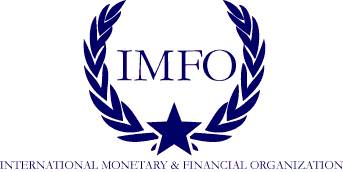
page 3 of 4
Now it was a different era. The President had handed day-to-day control of the country to his nephew—his own son he’d had murdered years ago for attempting an early power play—and the West’s new cause was the War Against Terrorism. With canny prescience, the regime had signed on at once, eager to show it was willing to do its part. Not that there were any terrorists within the country—certainly none of global reach or with the remotest link to the Trade Center attacks—just a handful of freedom fighters calling for an end to the oppression and the beginning of a true democracy. But it gave the government the perfect pretext for renewing its clampdowns. Students, trade union leaders, political opponents—anyone could be rounded up and in the name of security. And the Americans, good natured but simplistic, always viewing the world in black and white, good and evil, cowboys and Indians, “with us or against us,” had swallowed the act, declaring the regime a force for freedom and a staunch ally in the global War on Terror.
Sophia was sickened to read of schoolteachers risking not just their livelihoods but their very lives for the sake of muttering a few words before class in the hope of keeping alive the culture, the history, the language of their proud and ancient people. At the time, Sophia was working on her doctorate at the London School of Economics. Before long she found herself embroiled in the debates and discussions of the various radical groups decrying the aborted birth of her nation, the President and “first family” pillaging the country’s wealth, the silencing of any opposition, the complicity of the civilized world.
But her disillusion with them soon set in, as the Marxist-Leninists battled the Leninist-Marxists over the finer points of dialectical materialism. The radical students were all of a kind: unwashed and unkempt, with greasy skin and woolly sweaters, carrying about them the languor of late nights and the smell of stale smoke. Sophia soon came to realize she had nothing in common with them or their barren bombast.
It was only when she visited her homeland that she really understood. The little things, not the political mumbo-jumbo, struck her. Children playing with sticks and old tires in festering slums. Rotten heaps on which dogs foraged for food, their ribcages protruding, snouts pinched and vicious with hunger. The dusty shops selling smelly old clothes and broken hardware and all the assorted rubble that only the poor will buy. The mixture of reverence and resentment in peoples’ eyes as the armoured Mercedes sped by, shuttling the rich and powerful from one presidential palace to another. The grim-faced guards and dull-eyed women, and always and everywhere, the stench of refuse and corruption.
Sophia had returned to London filled with horror and disgust, ashamed of her relief at having escaped growing up under this oppression, and loathing the regime that had made it possible. Melamed, a veteran freedom fighter who’d been in the struggle for democracy ever since his own student days, spotted her at one of those meetings at the LSE. It was from Melamed that she finally learned the truth about her father—and what she could do about it.
Sophia’s father had been a jurist of international renown, called to the Bar in London, and a prominent lawyer in his own country. Although students could be thrown in jail, dissidents made to disappear, a man of his standing could not be disposed of so readily. When he began defending dissidents and documenting disappearances, the regime resolved to silence him.
There was a small photograph in the newspapers the day he died—Sophia had gone to the British Library, finding it among the other obscure foreign newspapers of twenty years ago. She studied the picture through a magnifying glass, coveting every pixel, as if searching for some hidden truth. The body lay prostrate on the dusty road, distended in anguish. The car had broken his spine, his arms were flung forward, his head tilted back unnaturally. Sophia could almost hear the awful snap, the agonizing howl the instant before he died.
1 | 2 | 3 | 4 | print this
